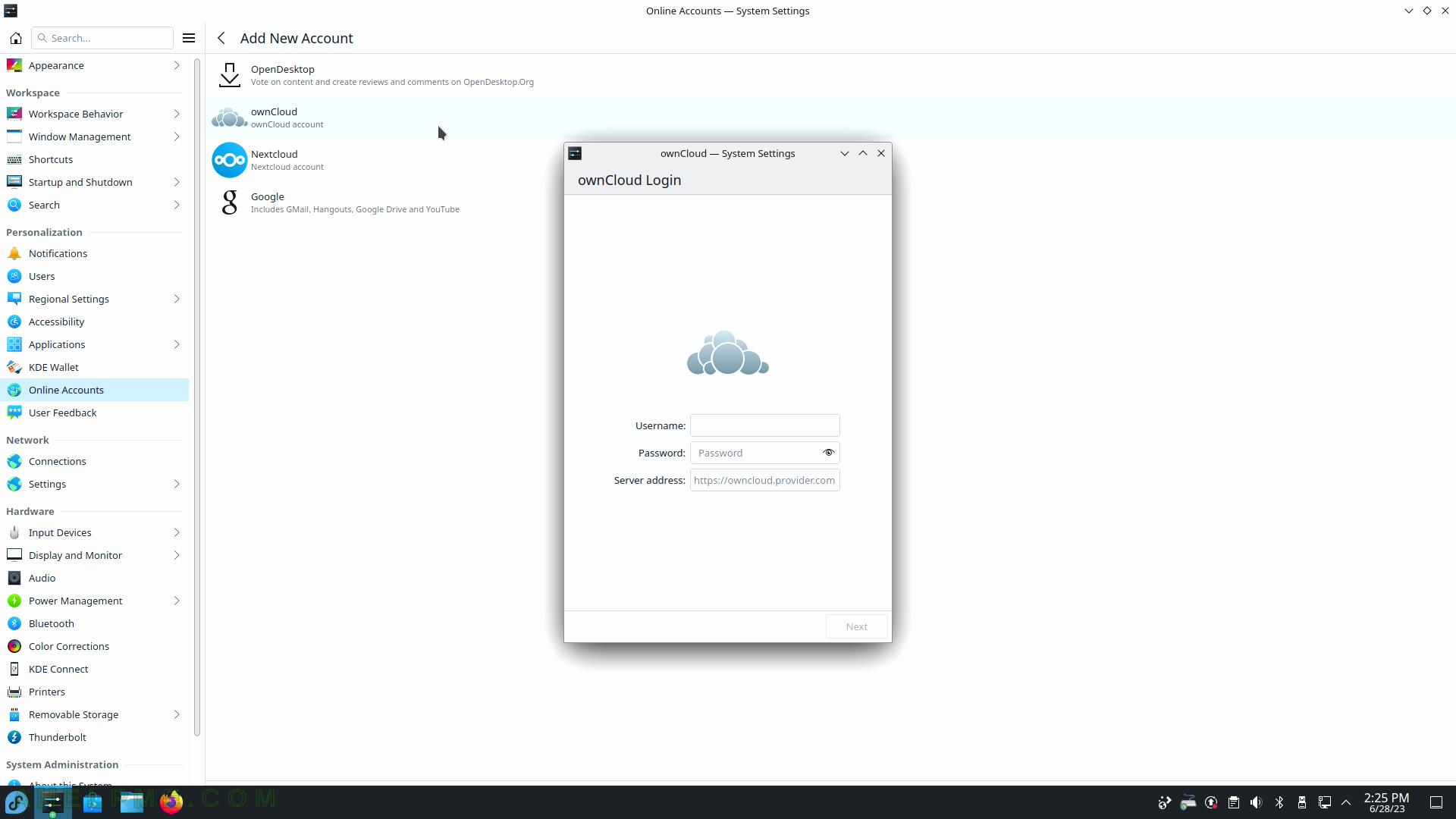SCREENSHOT 51) All base file association types – application, audio, font, image, inode, message, model, multipart, text, video, x-content and x-epoc.
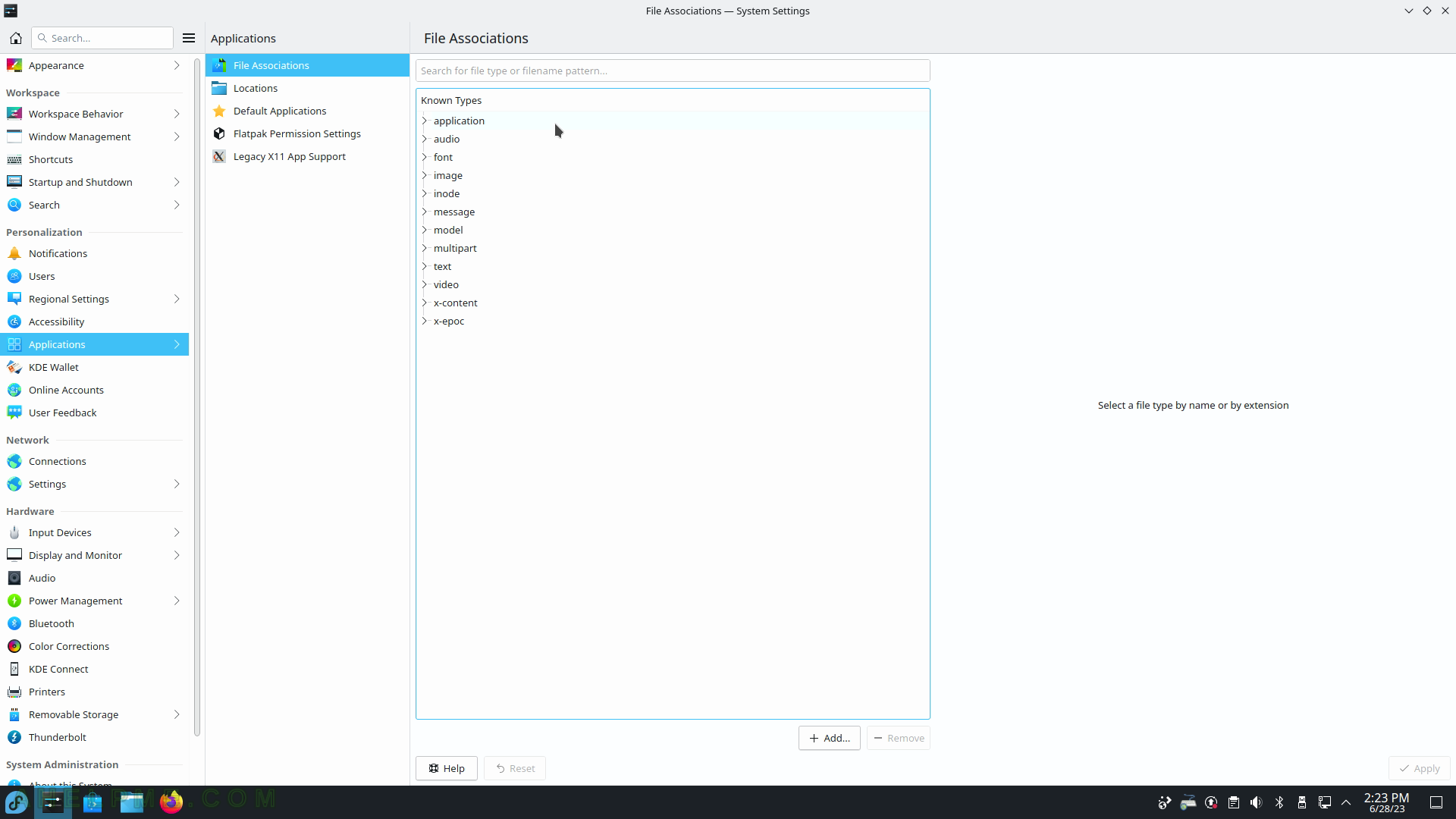
SCREENSHOT 52) File Associations – control which program will open a specific file extension.
For example, the “gz” file extension is a gzip archive and it would be open with the “Ark” application. It may include several applications in application order preference.
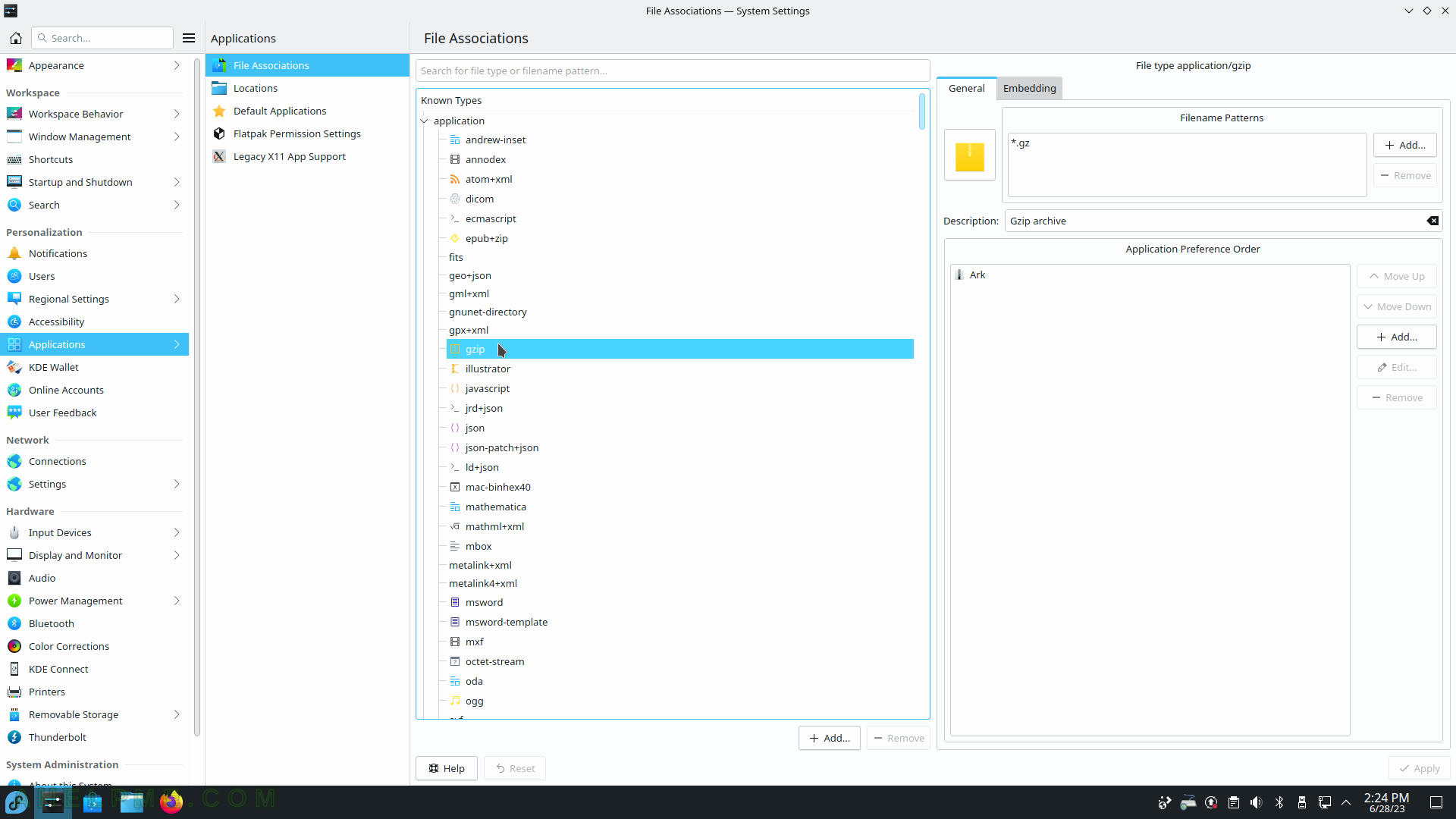
SCREENSHOT 53) the default location paths for “virtual folders” like Desktop, Documents, Downloads, Videos, Pictures, and Music.
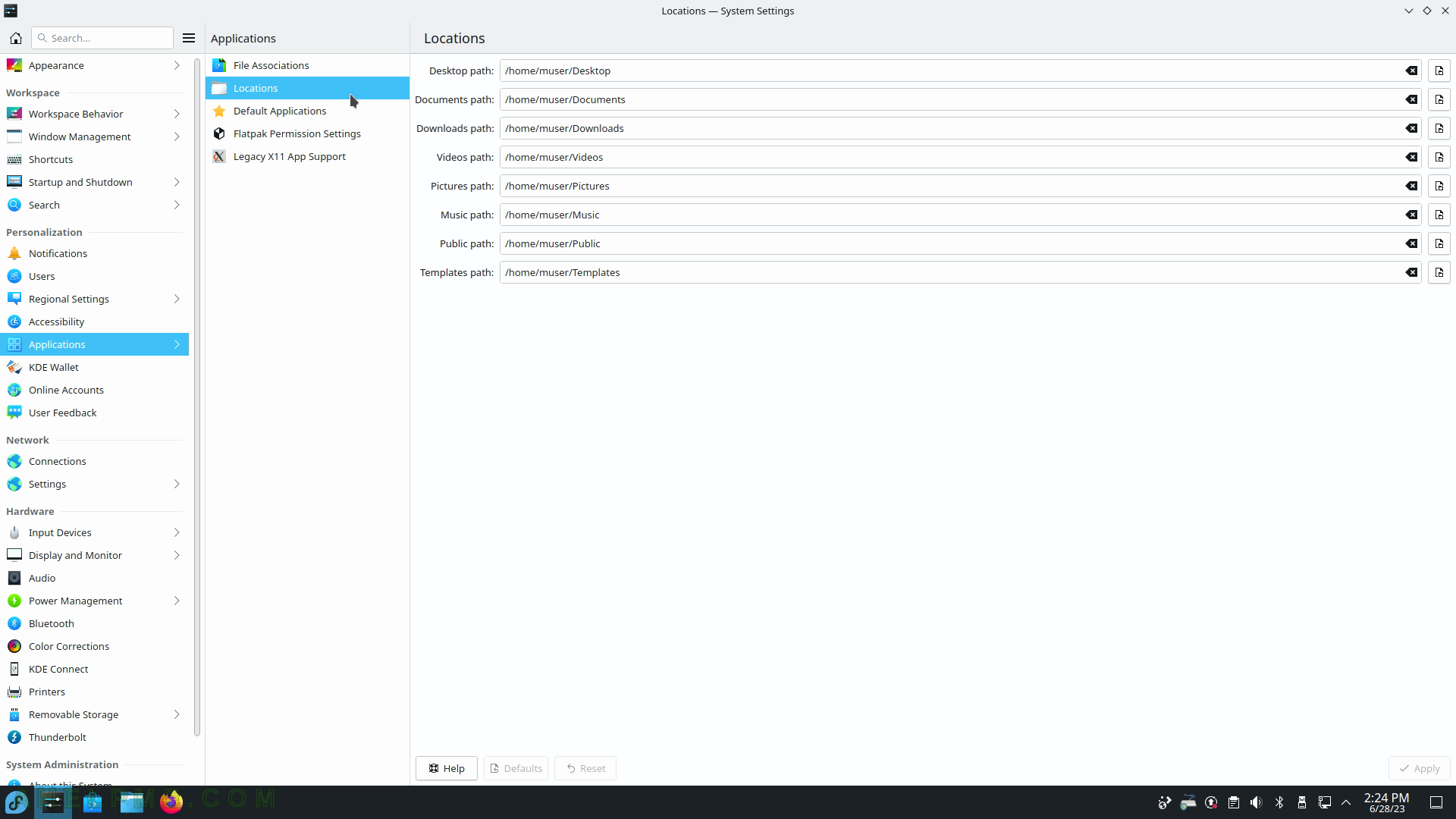
SCREENSHOT 54) Default applications for the important productivity applications – Web browser – Firefox, File manager – Dolphin, Email client – KMail, Terminal emulator – Konsole, Map – OpenStreetMap, and Dailer – KDE Connect.
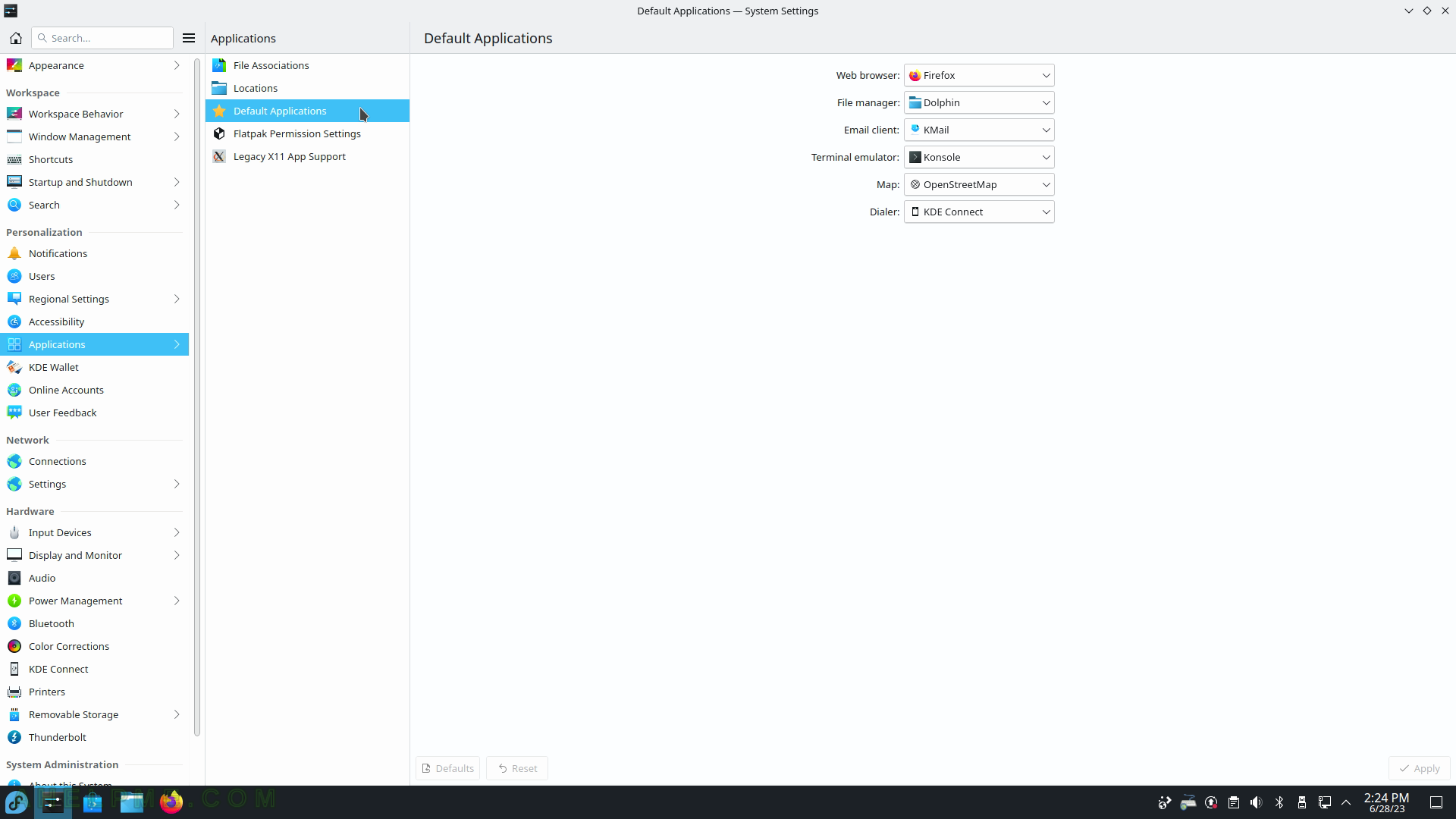
SCREENSHOT 55) Custom permissions for the flatpack packages.
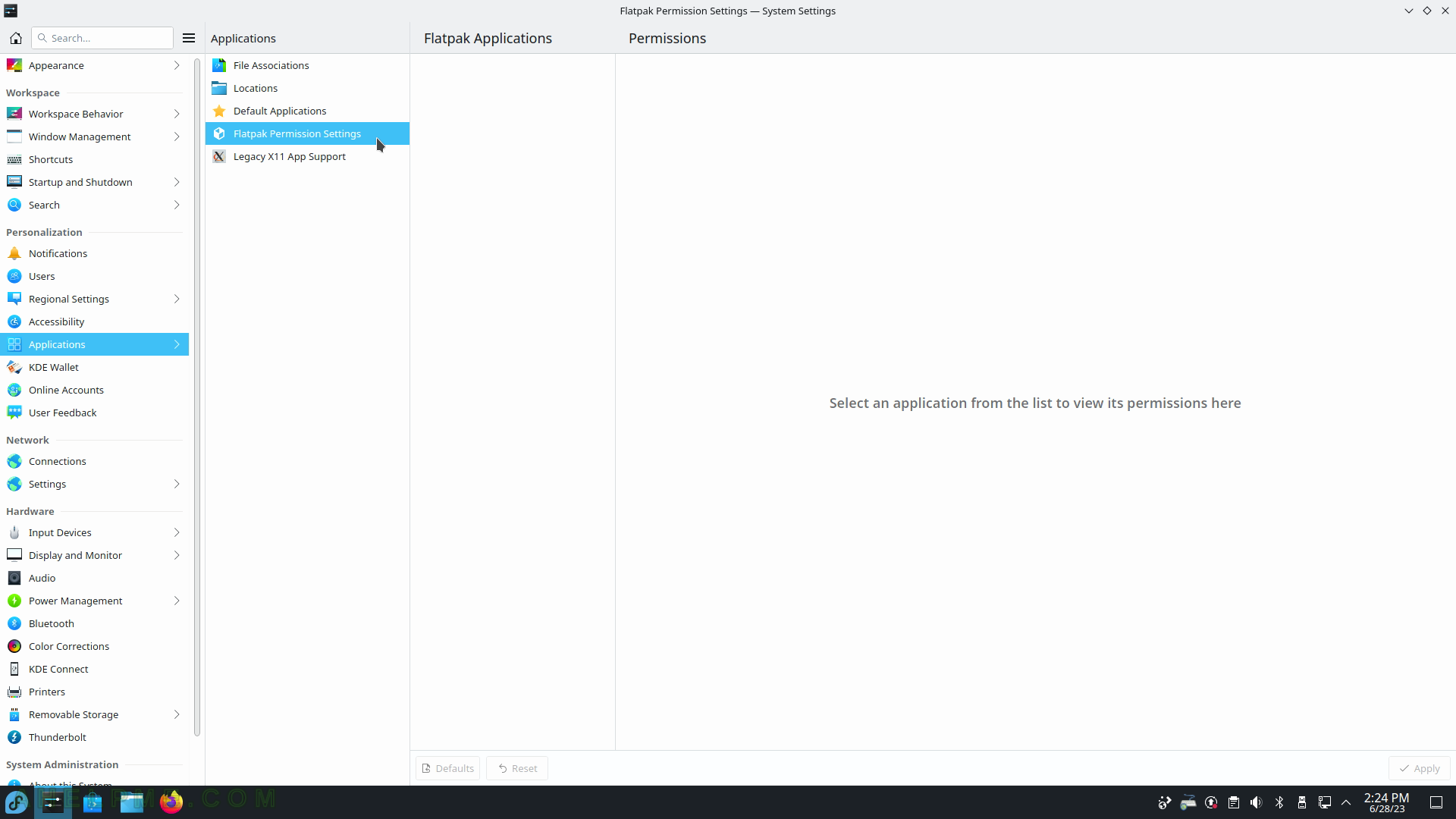
SCREENSHOT 56) Legacy X11 apps require the ability to read keystrokes typed in other apps for features that are activated using global keyboard shortcuts.
This is disabled by default for security reasons.
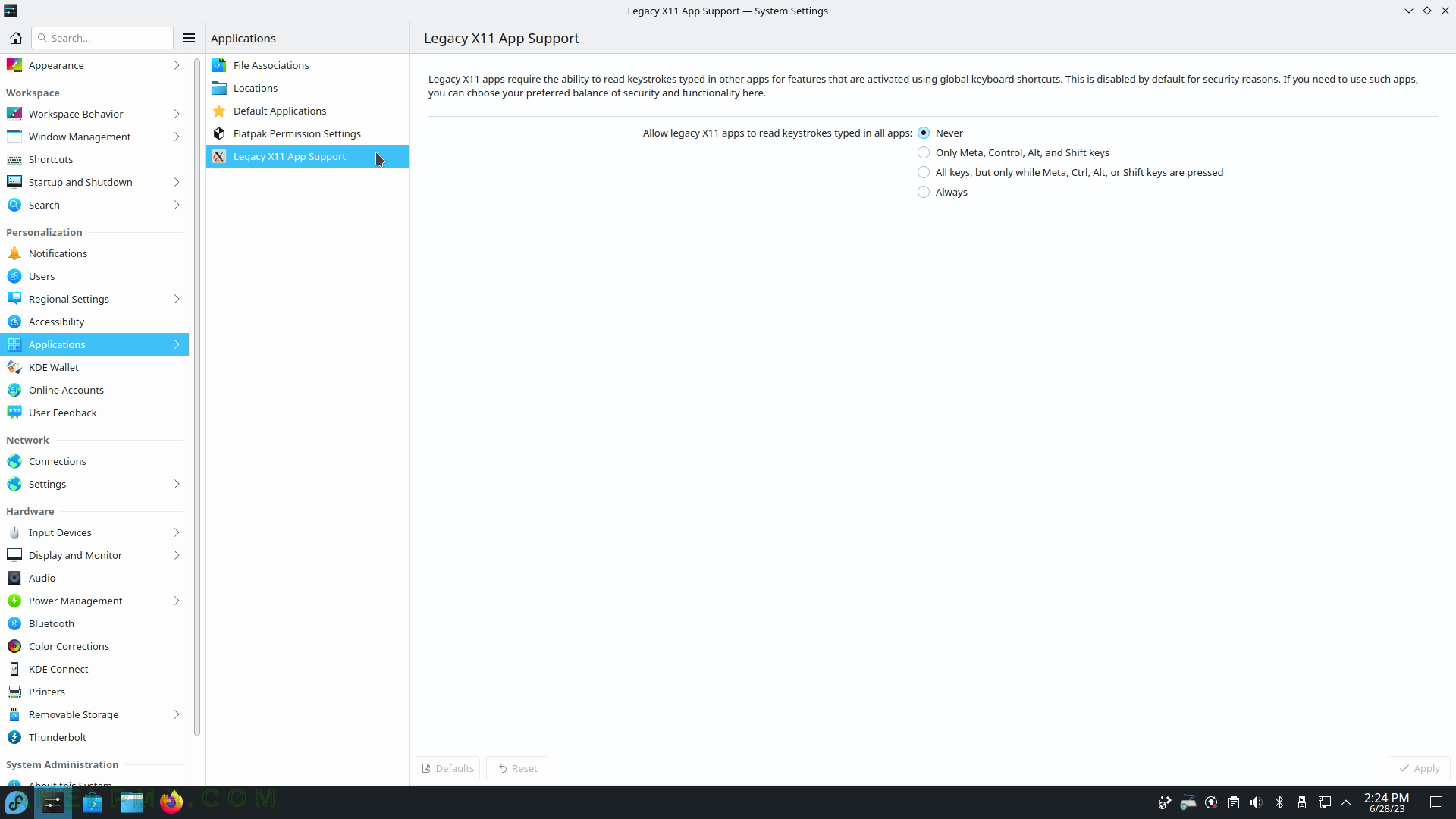
SCREENSHOT 57) Enable or disable the key and password store in KDE Plasma.
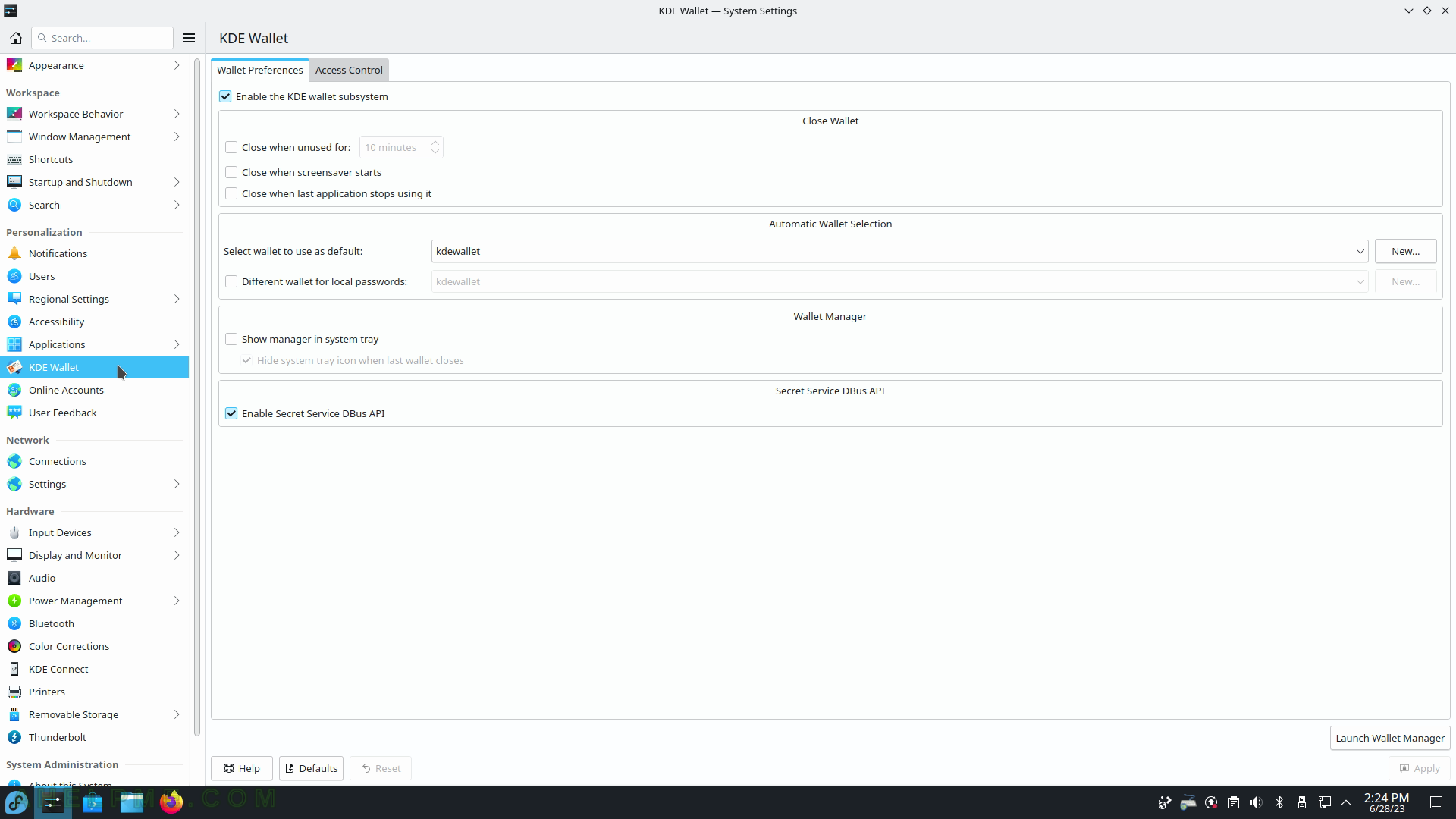
SCREENSHOT 58) Access Control – policy and access to the wallet.
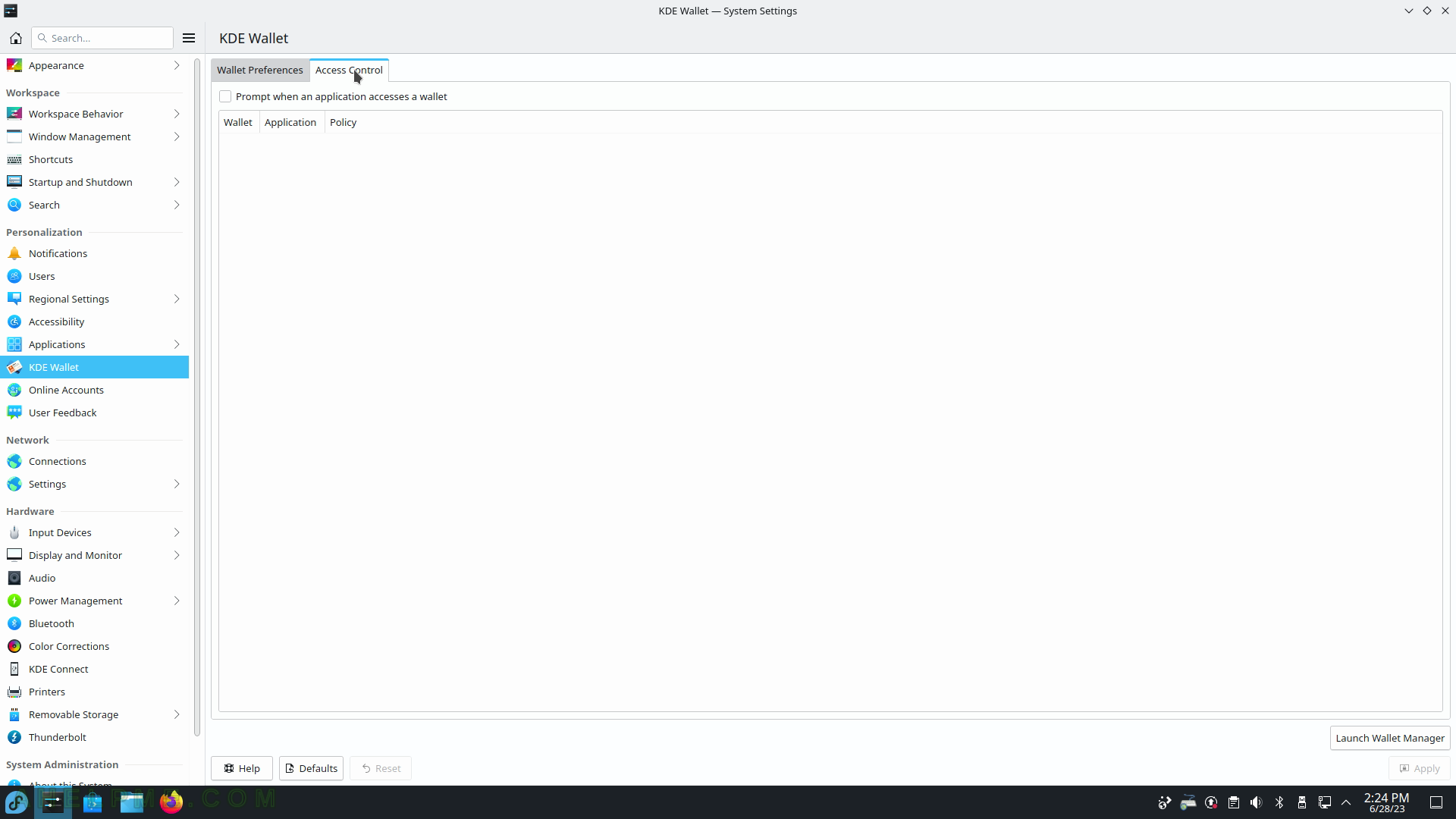
SCREENSHOT 59) No accounts are added in this system.
Click on “Add New Account…” to add one.
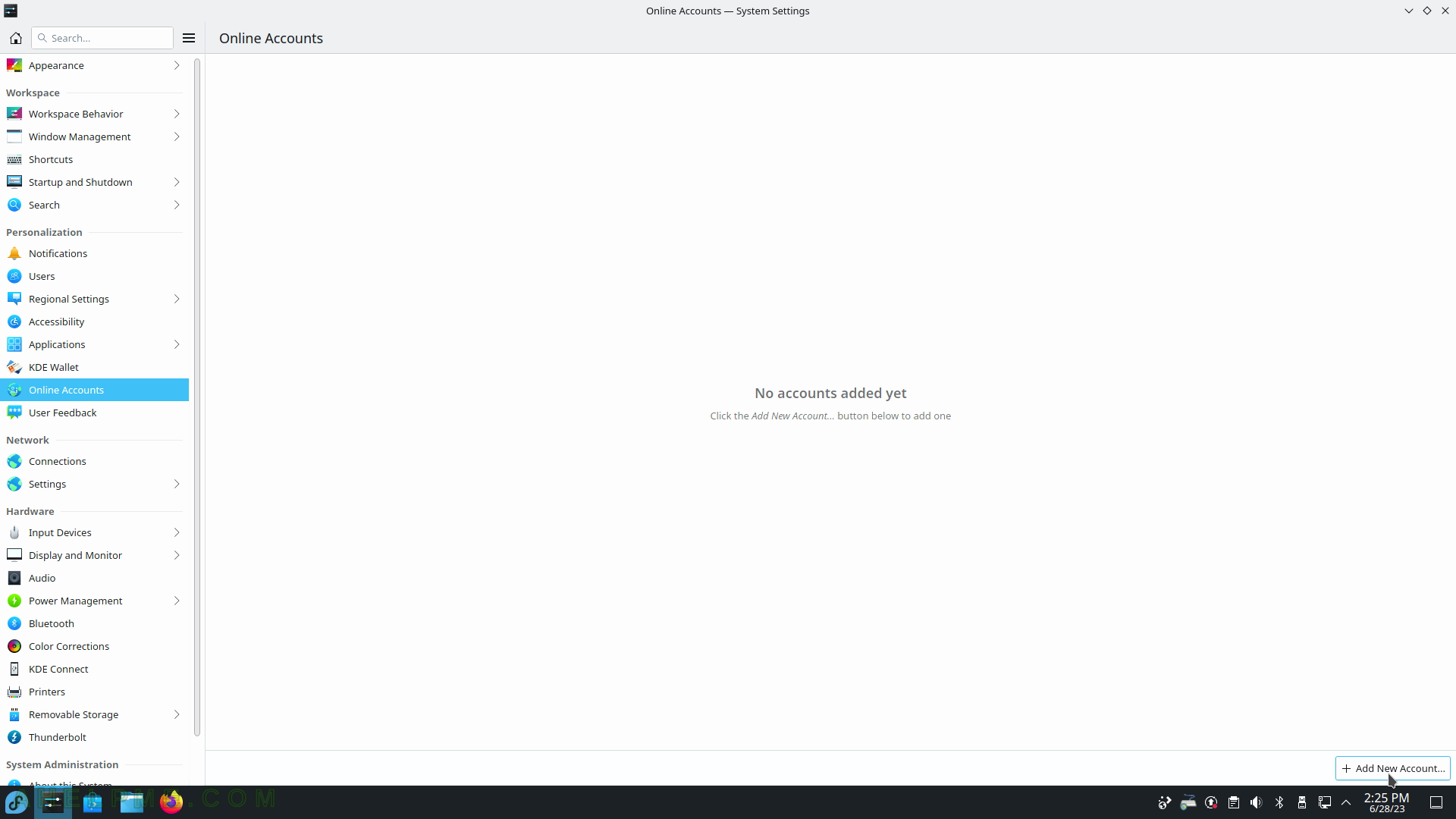
SCREENSHOT 60) Add a new cloud account.
The supported cloud accounts are OpenDesktop, ownCloud, NextCloud, and Google.
